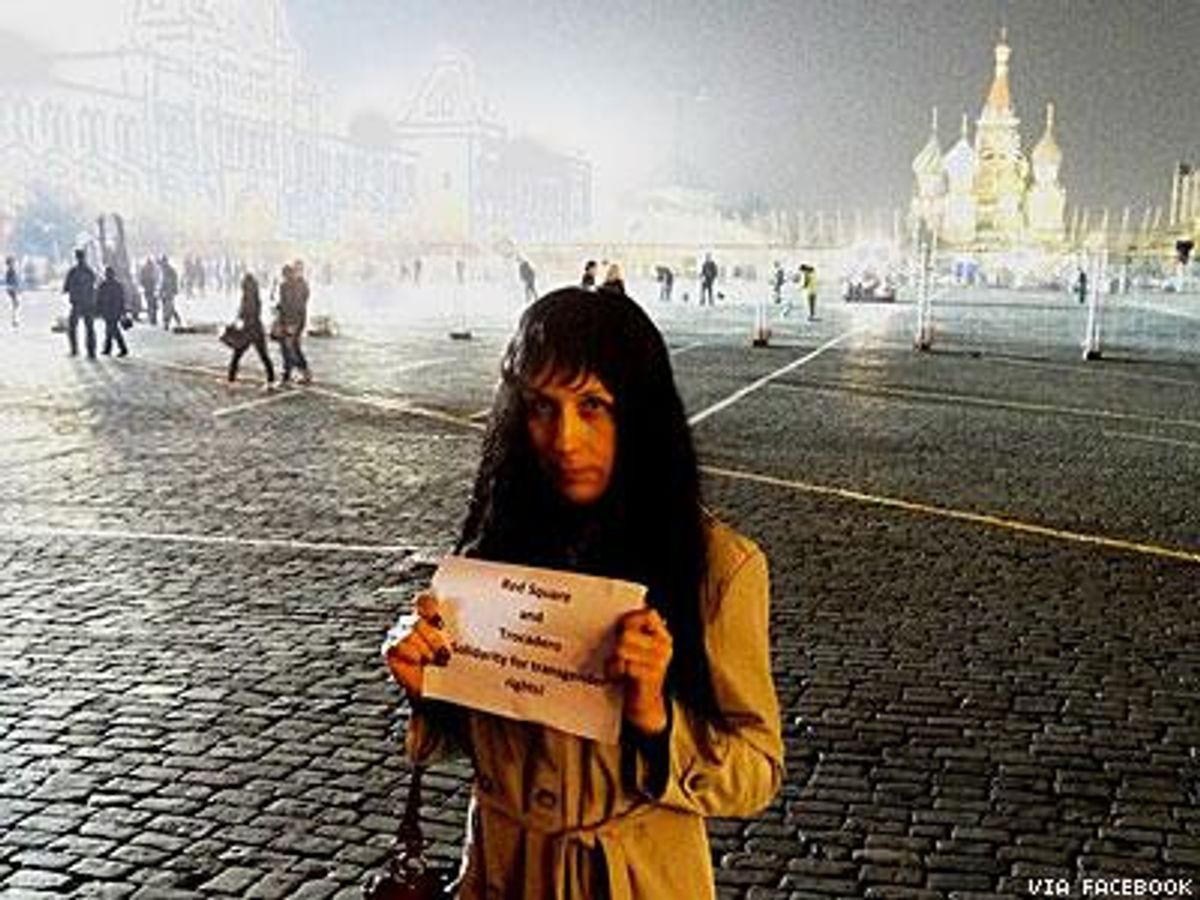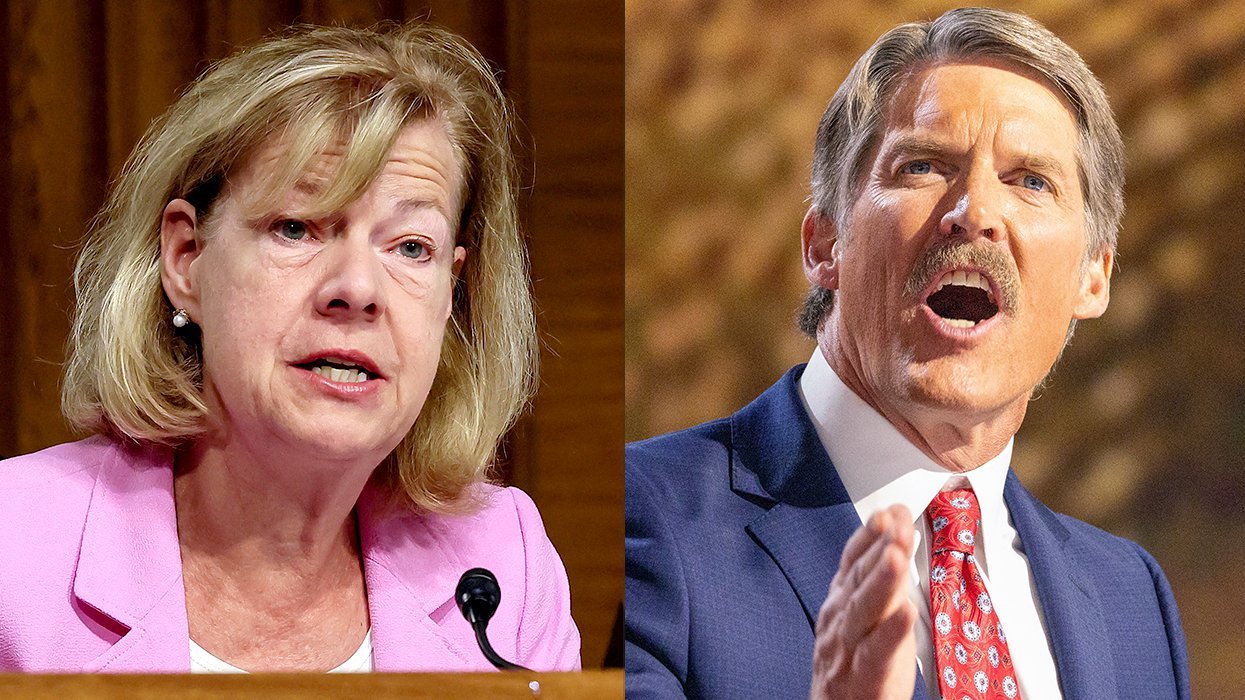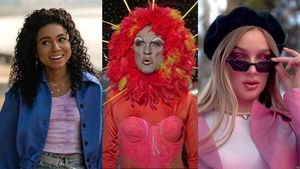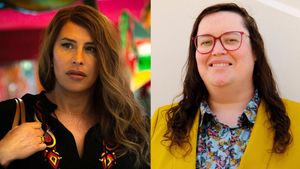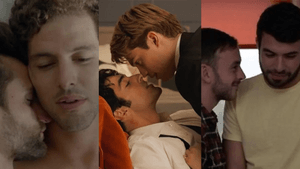Masha Bast is the chairwoman for the Association of Russian Lawyers for Human Rights and has worked on some of the nation's most high-profile human rights cases. She's defended clients facing down the government for allegedly violently protesting corruption. This weekend she took part in a demonstration on the streets of Moscow to protest Russia's draconian anti-LGBT laws.
And last week the Moscow-based lawyer's fight for human rights took a personal tone, as she announced that she is a bisexual transgender woman. Bast, who is married to another Russian woman, said she decided to come out now to protest the nationwide ban on "propaganda of nontraditional sexual relations," passed this summer. Since the law, modeled after similar local legislation, passed the nation's parliament unanimously, LGBT Russians and visitors have been beaten, kidnapped, arrested, and silenced in what amounts to a ban on LGBT identities in any public or private space that might be accesible to minors.
Speaking with The Moscow Times, Bast said her motivation to come out was threefold.
"First, it would have been very difficult for me personally not to come out," Bast said. "Second, having represented people in the Manezh Square, Primorsky partisans, and Bolotnaya cases, when those finished up I finally had the opportunity to come out. Third, my coming out was a protest against what is going on in Russia today. I couldn't just sit there and do nothing."
The Moscow Times reporter then asked Bast what "made" her transgender. Bast patiently explains what the word transgender means, noting that she thinks of herself as a woman but also a part of the LGBT community.
"It isn't a matter of upbringing," Bast said. "It's nature. That's why I think the law against 'homosexual propaganda' is a law against children and one that targets certain social groups. It is a fascist law and nothing else."
Bast also spoke about knowing that she was a girl from age 10, and even going to school dances dressed in women's clothing, though when she was growing up in Soviet Russia, there were no depictions of LGBT people that she could look to for inspiration.
"You have to understand the complete lack of information on this subject," she explained. "According to statistics, there are thousands of people going through what I went through. Just imagine all the kids who have no idea what's happening to them. I never once met a homosexual in my childhood and only learned what a homosexual was when I was 14."
Despite the nationwide ban on so-called homosexual propaganda, which imposes fines and possible jail time for any individual or media organization speaking positively about LGBT people or identities, Bast urges young transgender Russians to come out.
"The sooner, the better," she said. "Don't be afraid of your parents. Too many trans people worry about how society sees them and think they're a problem for society. Don't think that. It is your right. If it makes someone uncomfortable, that's their problem. And especially for young trans women, don't be afraid to go to a doctor. There are good doctors in Moscow and some in St. Petersburg who won't judge you."
Bast invited supporters to follow her progress on Facebook, where she intends to post information about her clinical transition, including hormone therapy, possible surgery, and her resolution to remain out and alive in a country that criminalizes her very existence.
Bast also has her own YouTube channel, where she posts "night blogs" discussing transphobia, her transition, and her life in Russia. Watch Bast's latest video, "About Transphobia," below, complete with subtitles in English.
